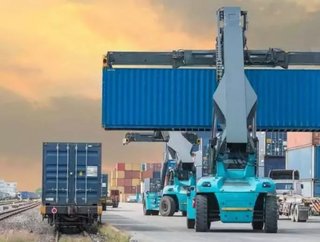Rising to the export challenge requires flexbility

Breaking into a new export market or increasing overseas trading activity can bring significant rewards for small and medium-sized manufacturers. However, there are significant financial risks to bear in mind.
Managing working capital can be particularly challenging for growing businesses. While a new export contract could represent a great opportunity to drive profits and increase the scale of the business, it could also pose risks if not carefully managed. According to the latest international trade survey by the British Chamber of Commerce, the majority of those that take the plunge experience an uptick in sales and a third expand their production capacity to cope with demand from international markets.
Often export activity means longer lead times and depending on the size of the contract, businesses may be required to make an initial outlay for key procurement costs, such as raw materials, as well as plant and machinery. In the short term, such pre-shipment costs could deplete cash resources significantly and make it harder for the business to pay for fixed costs, such as staff and property leases, and pay suppliers.
To minimise the risk of getting into financial difficulty, manufacturers may wish to take the precaution of asking the overseas customer to provide a letter of credit to guarantee payment. Such guarantees can help to improve confidence and reassure lenders. While businesses are often understandably reluctant to request them, in some circumstances it may also be possible to negotiate a phased timetable of payments prior to signing the agreement.
To help bridge any gaps and ease pressure on cash flow, the business should put in place flexible finance arrangements, such as invoice finance, to give them access to funds that they can draw upon as needed. This type of finance can be especially useful if the business believes it might be necessary to dip into profits to meet the cost of operational overheads.
When trading in a new territory for the first time, it is important to get to know the local customs, as well as any relevant laws and regulations. Getting in touch with UK Trade and Investment (UKTI) is a useful first step; providing access to accurate and up-to-date information about doing business in different parts of the world. For example, when trading in certain countries it is necessary to set up a local branch office and the UKTI can advise on how to go about this. It may also be possible to join trade visits to certain countries in order to explore other export opportunities.
Dealing in foreign currencies can also pose specific risks to businesses trading internationally. In some cases, fluctuating exchange rates could erode profits; turning what should have been a healthy profit into a loss. If care is taken when drawing up contracts, it may be possible for the business to build in clauses that help to mitigate such risks and in some cases, it may be possible to agree terms that allow the business to trade in sterling.
Before signing an overseas trading agreement, manufacturers should consider all the risks and challenges it is likely to bring. Planning ahead by preparing a detailed financial forecast, backed up by a flexible finance package, will ensure the firm’s growth strategy is sustainable.
John Atkinson is Managing Director at Hitachi Capital Invoice Finance
Follow @ManufacturingGL and @NellWalkerMG
- How Smart Factories are Reshaping the Manufacturing SectorSmart Manufacturing
- Crowe UK: 2024 Manufacturing Outlook Report Explores GrowthProduction & Operations
- Top 10: Chief Manufacturing OfficersProduction & Operations
- Aerospace Insight: Where does Boeing make all of its PlanesProduction & Operations






